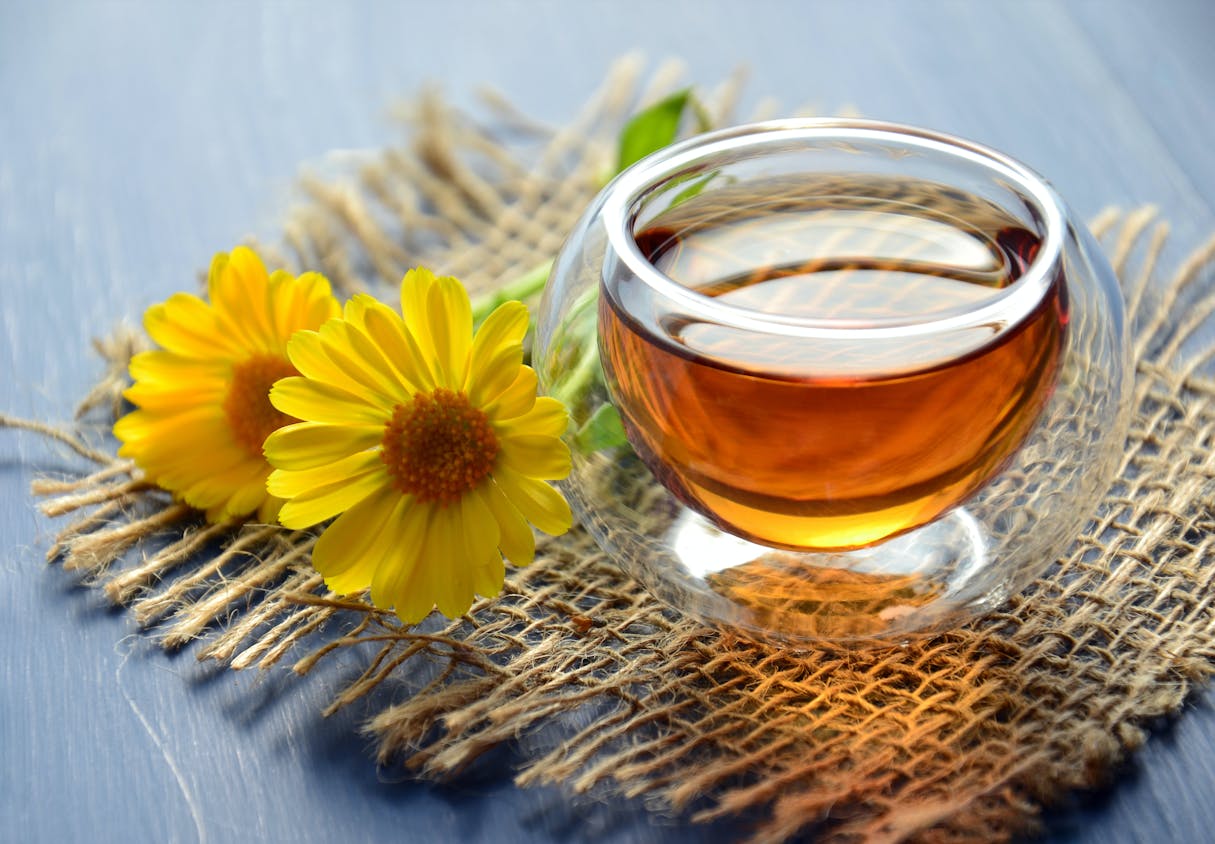Life rarely slows down, and quality rest often suffers. Choosing the best herbal teas for relaxation and sleep helps you reset your rhythm naturally. Herbal teas contain soothing plant compounds that calm your nervous system, reduce stress, and promote better sleep. Whether you need to wind down after a hectic day or struggle with staying asleep, these natural remedies offer a gentle, effective solution.
:max_bytes(150000):strip_icc():format(webp)/Health-GettyImages-TeasForSleep-c01a2f459a1f4410be64034ca1012047.jpg)
Why Herbal Teas Help You Sleep Better
Herbal teas don’t contain caffeine, which makes them ideal before bed. Many contain plant compounds like apigenin, linalool, and valerenic acid, which interact with the brain’s receptors to lower stress and encourage relaxation.
Unlike prescription sleep aids, the best herbal teas for relaxation and sleep do not cause grogginess. They work with your body’s natural rhythm and support deeper REM sleep without disturbing your next day. Beyond sleep, these teas also improve digestion, balance cortisol levels, and reduce tension. Making a warm cup part of your nightly ritual teaches your brain to unwind consistently.

Chamomile: The Classic Calmer
Chamomile tea remains a top choice when talking about the best herbal teas for relaxation and sleep. It contains apigenin, a compound that binds to GABA receptors in the brain, helping reduce anxiety and increase sleepiness.
Chamomile also eases muscle tension, calms digestive discomfort, and reduces inflammation. It suits both adults and children and works well as part of a calming bedtime routine. Drink it warm, about 30 minutes before sleep. You can also combine it with lavender or lemon balm for a more powerful calming effect.
Valerian Root: Strong Sleep Support
Valerian root tea works like a natural sedative. It supports deep sleep, especially if you deal with insomnia or wake up often during the night. Rich in valerenic acid, this herb increases GABA levels in the brain, promoting tranquility.
It has an earthy, somewhat bitter taste, so many people mix it with peppermint or chamomile. Use it when you feel mentally restless or physically wound up. Valerian is among the best herbal teas for relaxation and sleep, especially if stress affects your rest. Limit use to a few times per week to prevent tolerance.

Lemon Balm: Gentle Mood Stabilizer
Lemon balm tea has a light, citrusy flavor and gentle calming properties. A cousin of the mint plant, it works well for people with mild anxiety, racing thoughts, or digestive tension. It boosts GABA activity and supports mental clarity during the day, while easing the mind at night.
This tea fits perfectly into both afternoon wind-downs and nighttime routines. Many people combine it with passionflower or chamomile for a fuller relaxation effect. Among the best herbal teas for relaxation and sleep, lemon balm also supports hormonal balance and reduces restlessness.
Lavender: Aromatic and Relaxing
Lavender tea isn’t just for aromatherapy—its floral taste and scent relax both body and mind. Rich in linalool, lavender naturally reduces stress hormones, balances mood, and encourages calmness.
Sipping it before bed creates a mental cue for rest. You may also notice reduced muscle tension, slower breathing, and lighter thoughts. It’s perfect for those dealing with emotional exhaustion or mental fatigue. For best results, pair lavender tea with low lighting and deep breathing. It ranks high among the best herbal teas for relaxation and sleep, especially when sleep is disrupted by stress.
Tips to Enhance the Benefits
For deeper results, build a routine around your tea:
- Brew it fresh with filtered water
- Avoid screens while drinking
- Add raw honey or cinnamon to support sleep
- Sip slowly, mindfully
- Try a blend with ashwagandha, holy basil, or skullcap for added calm
Stay consistent. Even the best herbal teas for relaxation and sleep need time to align with your body’s rhythm.
Final Sip: Peace in a Cup
The best herbal teas for relaxation and sleep don’t just calm the body—they restore the soul. Make them part of your nightly ritual, and you’ll find sleep arriving easier, deeper, and more naturally. Let your cup be your cue. The more you sip, the more your body remembers to rest.
